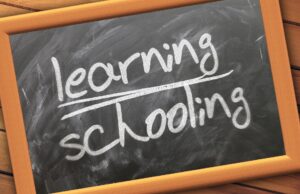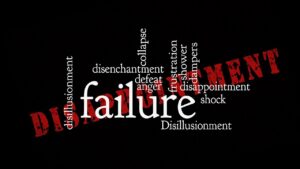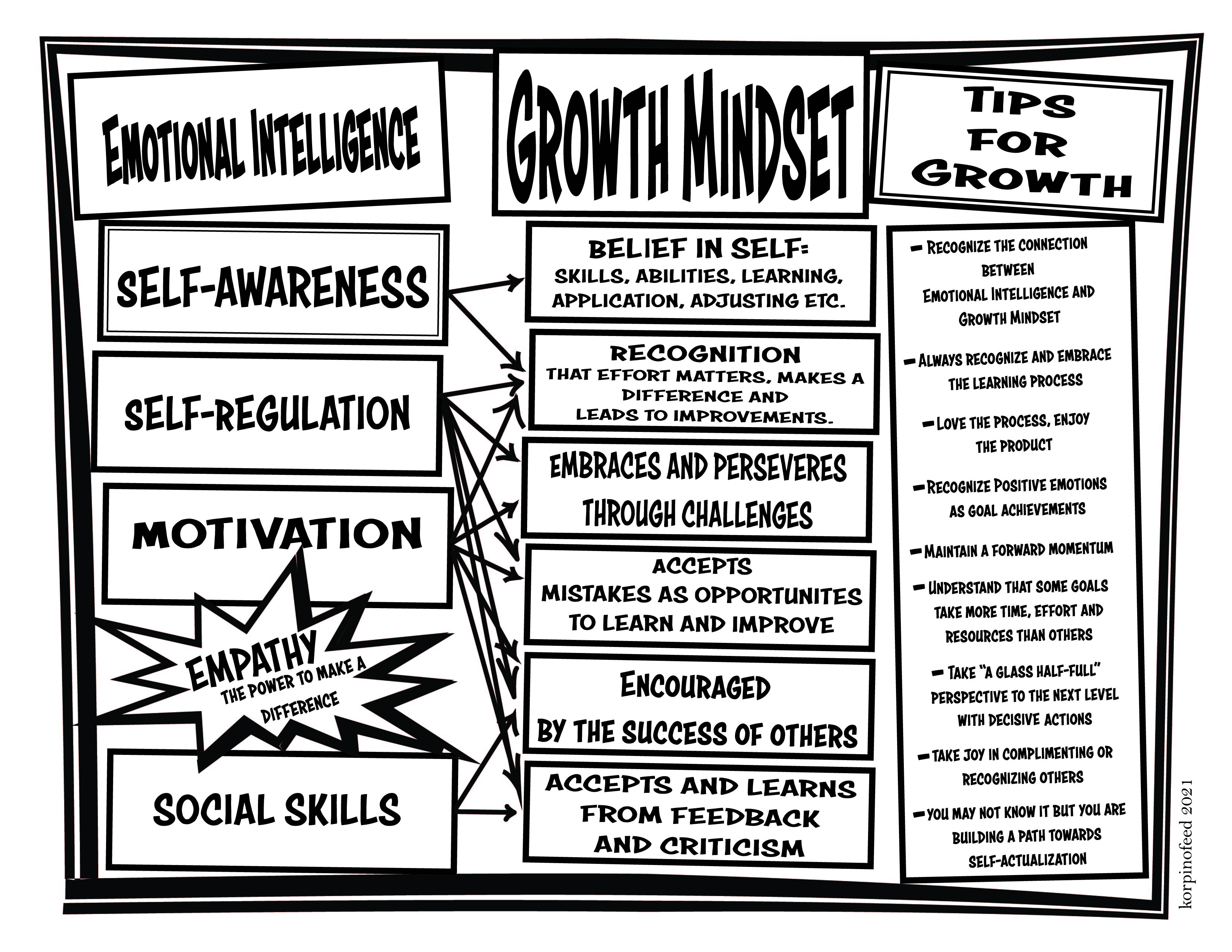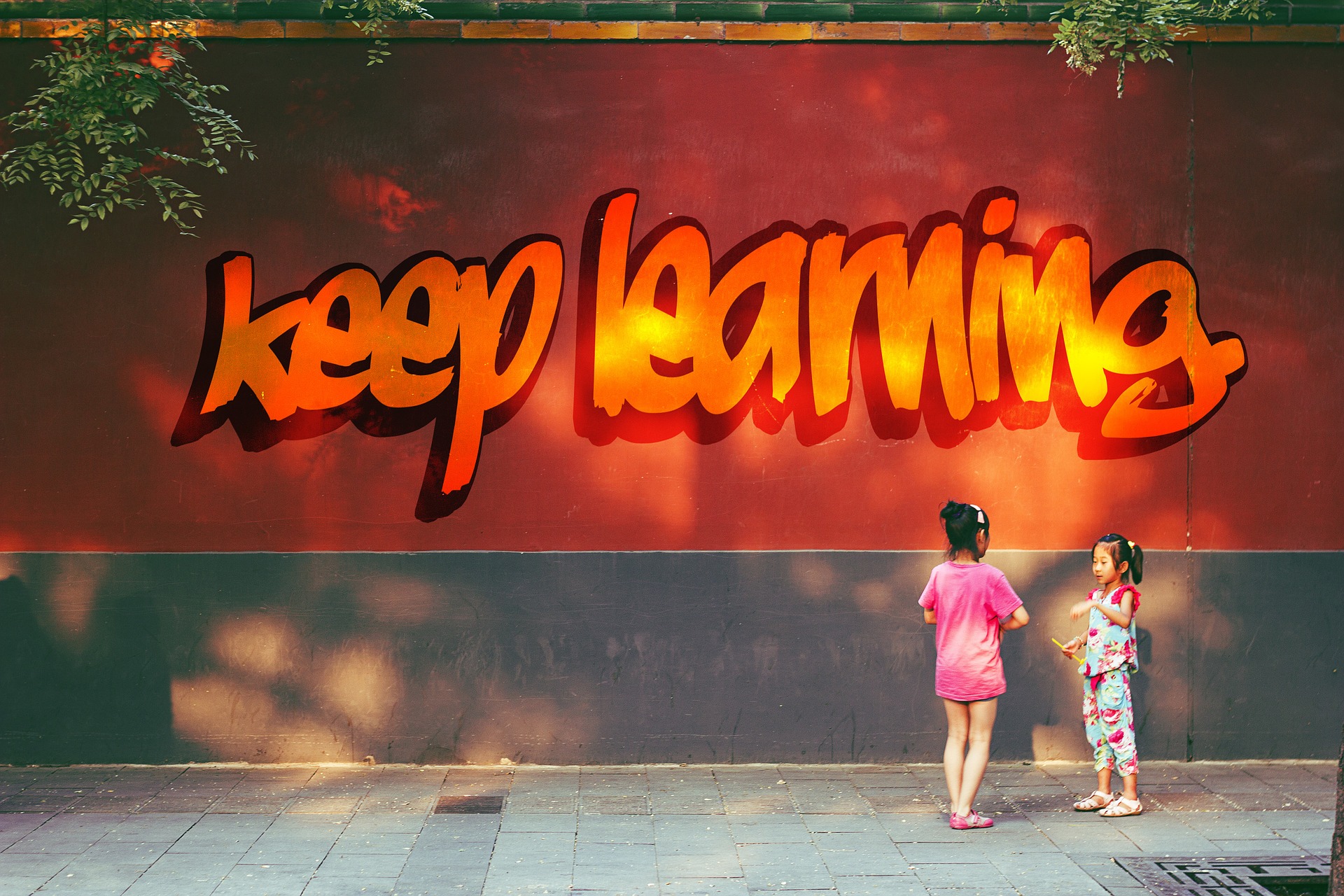
As a former educator, my career began when I was able to accept the fact that despite my profession, I will always be a learner. It brought true meaning to the idea that students, “Don’t need a sage on the stage, rather, they need a guide on the side.” Many times, part of being that guide is to show transparency when you don’t know something. Then the true power of teaching and learning comes from guiding them on how to think and work through something unknown. It was learning over schooling. This is where the strengthening of students’ Emotional Intelligence, or EI, and their development of a Growth Mindset are paramount.
What are EI and a Growth Mindset?
Before proceeding forward with the importance of and how to develop a healthy EQ and a growth mindset, it would be beneficial for us to get on the same page with what each are. Many would argue that if not more, EI and a Growth Mindset are more valuable than cognitive or academic intelligence. It amazes me that terms like Emotional Intelligence, or EI, and Growth Mindset became “educational buzzwords” 21st Century.
Let’s put that amazing fact into perspective. From the 17th Century to the 21st Century we have had a “fixed mindset” that quantifiable data is the only indicator of educational success. Although, despite the push for both concepts in education today, it is still the quantifiable data that annually labels our students, teachers and schools.
Emotional Intelligence
During my Master’s program at Arizona State University, I fell in love with two psychological studies. One, the work of Martin Seligman and Positive Psychology. The second, Daniel Goleman and Emotional Intelligence. Both equally important and share overlapping concepts and results, in the world of learning and living a balanced life. For today, I will only focus on Emotional Intelligence.
First question can easily be, “What is EQ and why is it an initialism for Emotional Intelligence?” Quite often you will see or EQ used synonymously with EI. Other than the difference with a letter, one stands for Emotional Intelligence (EI) and the other stands for Emotional Quotient (EQ), they are different.
EI
In short, Emotional Intelligence (EI) is the ability to be aware of and regulate emotions, to appropriately manage the ensuing actions. Ultimately, maneuvering through social situations with strategic thought. Think of a future, emotionally driven experience as if it was a multiple choice question on an exam. Take this scenario as an example:
After a long day in the backyard of planting new annuals in your garden bed, your puppy mistakes it for his new play area. Yes, total destruction. Do you:
a. After taking notice, you clench your fists, walk back inside the house and watch reruns of The Brady Bunch.

b. You realize that you should have known better and that you should have put in the time to either watch your puppy or installed a protective border.
c. You laugh and hug your puppy and post pictures of his deed on social media.
d. Check receipts for information on return policies (flowers and puppies).
Which one would you choose? For many of us, the question is, “Which one did you choose?” If you were able to genuinely choose a, b, c, or d, then you exhibit (or exhibited) an action based off of some knowledge of Emotional Intelligence.
Now you may think that two of the choices, showed some signs of negative or unpopular thoughts (a and d). Inevitably though, the actions never physically punished the puppy. EI is the awareness of emotions followed by an action that compliments your values or motivation.
Hmmm?
Now I know what you are thinking, “What if someone’s values or motivation are not altruistic in nature?” Well you are exactly right, Emotional Intelligence can work both ways. Think about the charismatic, yet narcissistic, company CEO who gets what he/she want out of the workforce. On the other hand, consider the selfless educator who did not have time for dinner after coaching basketball and tutoring. Not making any specific claim on either role, but you can easily chart out their possible goals and intentions.
Not to get off on a comic book tangent, but I suppose a suitable parallel would be Captain Steve Rogers. What made him best fit to be Captain America, leader of the Avengers and the ability to be as worthy as an Asgardian God of Thunder? Don’t be mistaken, it was not the super soldier serum. The serum was only a tool that helped him carry out his secret weapon: his genuine heart and pure intentions to do good. In short, the foundation of his goals and intentions was compassion.

This is the Emotional Intelligence that we need to build within ourselves and our children. The ability to be aware of and regulate our emotions. Regulate them in order to influence our decisions and actions. With the hope that those decisions and actions impact the greater good of those around us. I like to think of Emotional Intelligence as the process of developing our intrapersonal (self) relationship skills, to better our interpersonal (social) relationship skills.
EQ
It is important to point out that no one is perfect when it comes to making the best decisions or actions. It is also important to understand that even with a high level of EI, we can still make mistakes. This is of course due to the complex nature of emotions. An intelligence test is different because we are scored on definitive “right or wrong” answers, giving us an IQ score.
Emotional Intelligence assessments can give us a glimpse into how we can conceptually act, in response to given scenarios. These assessments give us an EQ score, paralleling the concept of an intelligence score (IQ). Unfortunately, this result could possibly be very different from what we would actually do when faced with challenges, once again due to the complex nature of emotions. .
The EI and Growth Mindset Tie In

The American Psychological Association (APA) Dictionary of Psychology defines “frustration” as the thwarting of impulses or actions that prevents individuals from obtaining something they have been led to expect based on past experience (APA). We experience the emotion of frustration when we feel that we cannot succeed at a task. The factors that prevent us from succeeding can be internal and/or external variables. The lack of knowledge or physical skills in a sport can prevent an athletic individual from succeeding, would be internal. External would be a storm coming in before someone can adequately protect their freshy painted deck. Both tasks are conceivably possible but not at those particular points in time.

When tasks are deemed impossible, due to frustration, many times giving up is an easier choice than working harder to succeed. When we give up, we are telling ourselves that no matter what we do and how hard we try, we will never succeed. A dislike for the task and an unwillingness to try anything further soon follows. At this point, we have developed a “fixed mindset” that we cannot do it.
Think about all of the tasks or ideas that you have a fixed mindset on. Think about the path you took that brought you to this mindset. That path was due to the missed opportunity to acknowledge and regulate your emotions, leading to the dismissal of your goal or intentions. Sound familiar?

Growth Mindset
Where there is a Will there is a Way!
This is not to say that having Emotional Intelligence guarantees successful experiences 100% of the time. EI enables the athlete to work on particular skills and knowledge of a particular sport to become better. EI will guide the weekend warrior to be upset but understand that he or she may need to apply another coat of paint after the storm passes through. Both will even be open to the option of might even consist of seeking out assistance from others. Whatever route they take, inevitably both individuals will move towards or find success.
The persistence and forward thinking, pulls them away from giving up. They both have their goals and they will figure out how to reach them, no matter the new learning or the time spent. “Where there is a will there is a way” is their mentality. This is what is referred to as a “Growth Mindset”.

My conclusion? EI and Growth Mindset go hand in hand. Emotional Intelligence is a precursor to a Growth Mindset. Trying to build a Growth Mindset without knowledge of your Emotional Intelligence is like thinking that a “Fad Diet” is a long term solution to good health. At some point the diet will fail.
Developing EI and a Growth Mindset
Take a minute to think about a professional athlete, musician, actor or actress, artist or even a skilled technician or practitioner in any field. It would come to no surprise that despite the possibilities of natural born talents, all of them can attest that their success comes from hours of practice, studying of their art, and experience. They know that perfection is unattainable and that they are all still capable of failure. Failures or setbacks are actually welcomed and seen as opportunities to learn even more about what they are already good at.
The common denominator with people that do things well is that they are emotionally driven to move forward, towards their goals. “Giving up” is the end game, which is synonymous with quitting. The emotions tied in with their goals is key. The attainment of those emotions, after achieving goals, is just as important as any monetary or physical reward.
When we successfully achieve any task, we are filled with positive emotions. As we experience this, any negative thought felt throughout the process becomes nullified. The book, ‘Positivity: Top-Notch Research Reveals the 3 to 1 Ratio That Will Change Your Life’ (Fredrickson, 2009) recognizes the impact of positive emotions when striving through a goal oriented life. Inevitably, Positive Psychology would make its way into this, of course.
Fredrickson (2009) labels Joy, Pride, Inspiration, Gratitude, Hope, Serenity, Awe, Interest, Love and Amusement as the ten most common positive emotions. When we work towards a goal and then successfully accomplish it, you can easily feel most, if not all of these emotions. Keep in mind, from students to professional athletes, successfully achieving our goals is not possible 100% of the time. These emotions have to be acknowledged and celebrated at all times.
“P” Versus “P”
Happiness is associated with the production or obtainment of goals. From minor to major, achieving goals is what we naturally set out to do. In this day and age of technology, information, knowledge or even a meal can be achieved within minutes. As a result, an instant gratification mentality sets in. We live in a product driven society. Many, children through adults, have lost the ability to enjoy or even embark on processes that consists of time and effort. This is why we tend to give up on challenging tasks. This is why kids give up on Math, writing, science or even some PE activities. When the product is not produced immediately, the interest and effort go down. This brings us to our first step towards a growth mindset. Sometimes we need to focus more on the “process” versus the “product”.

Keeping your focus on the goal, or the product, is always important. Focusing on the process, is beneficial when we understand that our current knowledge and skill base do not meet the required standard for a quick and easy completion. For these challenges, we break the main goal into viable chunks of objectives. In order to reach these objectives we have to obtain, sometimes slowly, the skills and knowledge that we are lacking.
Motivate Motivation
With the importance of “process” in mind, keep your foot on the pedal. A Growth Mindset needs nurturing. A fixed mindset finds it difficult to stay motivated on a challenge that consists of extra time, earning and effort. A growth mindset understands that the time spent, the learning and the effort are key, not only to the task at hand, but also to future problem solving situations. To motivate that motivation, we have to learn how to celebrate and praise the big and small victories, to fuel and ignite those positive emotions. The more positive emotions that we get from praise, the more we continue to engage with work motivation.
Praise is just one way to receive feedback. We can also be motivated by constructive or deconstructive criticism. This, of course, is easier said than done but this is where the Emotional Intelligence comes into play. With a strong sense of self-awareness and regulation, criticism is welcomed and is recognized at part of the learning process.
Closing
Both EI and a growth mindset do not happen over night. They take time, application, and reflection. In addition, EI and a growth mind set does not translate into 100% success rates or easy living. Although, what they both have the potential of doing is mental and physical self-improvement, due to the commitment to positive emotions and forward momentum.
It is also not a secret that employers actively seek out individuals with EI and a growth mindset and that many companies implement trainings, programs or incentives to encourage the development of both. They covet employees who have the ability to be productive, just to learn more to continue to be productive.
In my opinion the ultimate payoff is empathy. This component of EI develops even more with a growth mindset. Not only do organizations want this but people, in general, gravitate towards those with empathy because of their ability to show genuine care and inspiration to have the courage to move forward. We all can say or feel empathy to others’ emotions, but when built upon a foundation of EI and applications of a growth mindset, there is power to make a difference. A difference at workplaces, social settings, at home, or for someone’s mental, physical or spiritual wellness.
As I conclude, I hope that it is clear that developing EI and a growth mindset are both challenging. Development does not happen over night, and may never come to full fruition, but the reward lies within the process of developing both. Most important, this is not just for students struggling with algebra or covalent bonds. Insert wink emoji.
Spiritual Bonus
It has sadly taken me a few weeks to complete this piece, due to the research and difficulties to write it out in a concise manner. As the thoughts and ideas exploded in my mind, the overwhelming feeling of information overload was taking me farther away from concluding my thoughts. I actually took a couple of days off from writing this. Then everything changed one Sunday, at service.
As a Christian, I try my best to align everything that I do with the righteousness and virtues taught and exhibited in the Holy Bible. On Father’s Day Sunday, we were blessed by one of our Assistant Pastors teaching the Word. There are no coincidences when it comes to the work of God, nor do I no longer believe that His work is mysterious. God’s work is timely and purposeful. The service below affirmed and solidified my learning and understanding of EI and Growth Mindset. Enjoy!!!
Reference:
Fredrickson, B. (2009). Positivity: Top-notch research reveals the 3-to-1 ratio that will change your life. Harmony.

